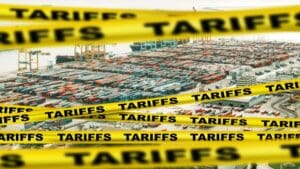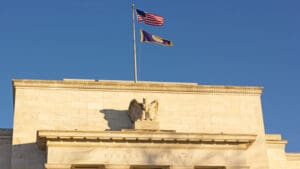Of all the troubles in the world, be glad you don’t have Jack Ma’s woes to contend with.
The billionaire founder of Alibaba Group Holding (ticker: BABA) has angered one of the world’s most powerful people, Xi Jinping, the leader of China. It is unclear how the story will end, or what ultimately happens to Alibaba.
For whatever reason—and there isn’t any good one—Ma gave a speech with critical comments about China’s financial regulations interfering with technological innovations. Xi quickly reminded China’s richest man to be mindful of his place.
Shortly thereafter, Xi reportedly blocked the initial public offering of Ant Financial Group, of which Alibaba owns a third, and put Alibaba under antitrust review for monopolistic business practices. Regulators are concerned that Ant is originating consumer loans and selling them to banks, without making financial accommodations to reflect risk. It has been suggested that Ant return to its origins as a payments network.
Alibaba has come under more intense scrutiny. The government is suddenly concerned that Alibaba, which owns many different but related companies, could be a monopoly.
Investors are panicked. Since late October, Alibaba’s stock has declined some 34%, dramatically underperforming Chinese stock proxies like the Xtrackers Harvest CSI 300 China A-Shares exchange-traded fund (ASHR) and the iShares China Large-Cap ETF (FXI). The selloff is one of the worst since Alibaba’s September 2014 stock offering.
One of the greatest fears most investors have about China is that the laws are unreliable. Nevertheless, Alibaba remains one of the most singular—if now controversial—ways to play the rise of China’s middle class, which is one of the world’s most profound economic events.
With Alibaba’s stock around $238, investors can sell the January $230 put option for $5.25 and sell the January $260 call option for $1.75. This so-called short strangle—that is, selling a put and call with different strike prices but the same expiration—pays investors for agreeing to buy Alibaba stock at an effective price of $223 (a $230 strike minus a $7 options premium) and to sell stock at an effective price of $267.
During the past 52 weeks, Alibaba has ranged from $169.95 to $319.32. The stock is up about 12% in 2020.
The risk to selling a strangle is high. The stock could plummet far below the put strike price if regulators decide to dismantle the company and disenfranchise investors, for example. The stock could surge, too, but it’s very difficult to characterize Alibaba’s path as anything but uncertain.
Alibaba’s stock, once universally admired as evidence of China’s technological and investment prowess, is trading under a cloud of unquantifiable uncertainty because Ma seemingly forgot his place in his country’s power structure.
If these regulatory reviews occurred anywhere but in China, investors would criticize Ma for speaking too freely and harming his business.
But most Western investors are scared that China ultimately threatens America’s global leadership. Alibaba has thus ceased—temporarily or permanently—to exist as an example of China’s technological might and innovation. Alibaba now trades under a cloud of uncertainty because the Chinese Communist Party has unlimited power.
Our suggested investment approach expresses a perhaps out-of-consensus view that Alibaba, to play off an old Chinese saying, isn’t the proverbial chicken about to be killed to scare the monkey.
Xi may discipline and humiliate Ma, but Xi is unlikely to seriously impede the flow of international money and domestic technology that Xi needs for China to continue its incredible economic rise.
—
Originally Posted on December 31, 2020 – Alibaba Stock Is Under Fire. This Options Play Bets It Will Recover.
Disclosure: Interactive Brokers Third Party
Information posted on IBKR Campus that is provided by third-parties does NOT constitute a recommendation that you should contract for the services of that third party. Third-party participants who contribute to IBKR Campus are independent of Interactive Brokers and Interactive Brokers does not make any representations or warranties concerning the services offered, their past or future performance, or the accuracy of the information provided by the third party. Past performance is no guarantee of future results.
This material is from Barron's and is being posted with its permission. The views expressed in this material are solely those of the author and/or Barron's and Interactive Brokers is not endorsing or recommending any investment or trading discussed in the material. This material is not and should not be construed as an offer to buy or sell any security. It should not be construed as research or investment advice or a recommendation to buy, sell or hold any security or commodity. This material does not and is not intended to take into account the particular financial conditions, investment objectives or requirements of individual customers. Before acting on this material, you should consider whether it is suitable for your particular circumstances and, as necessary, seek professional advice.
Disclosure: Options Trading
Options involve risk and are not suitable for all investors. For information on the uses and risks of options, you can obtain a copy of the Options Clearing Corporation risk disclosure document titled Characteristics and Risks of Standardized Options by going to the following link ibkr.com/occ. Multiple leg strategies, including spreads, will incur multiple transaction costs.




















Join The Conversation
For specific platform feedback and suggestions, please submit it directly to our team using these instructions.
If you have an account-specific question or concern, please reach out to Client Services.
We encourage you to look through our FAQs before posting. Your question may already be covered!